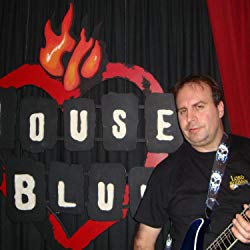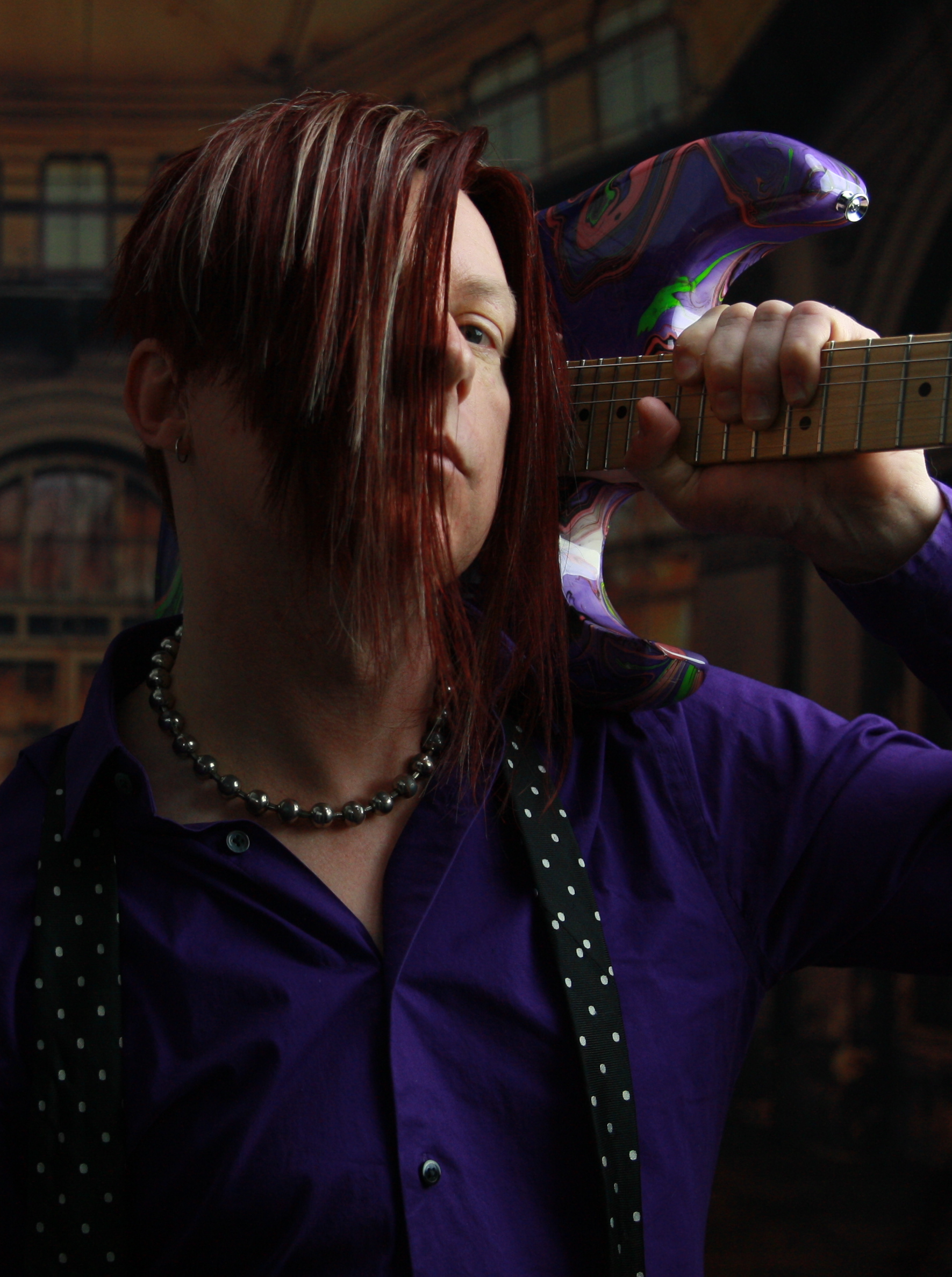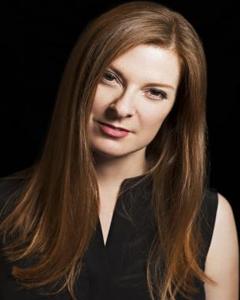
Galadrielle Allman
Imagine for a moment your father was an icon of his generation – rock music music royalty whose name elicits reverential tones from anyone who speaks of him. Imagine also that he dies tragically when you were just a small child, and because of the ongoing pain of that loss and the natural reticence of his family to talk about it you grow up knowing less about him than do most of his fans. And then well into your adulthood you decide it is time to put all this non-speaking to rest and learn everything you can about him, no matter how painful the conversations will be. To top it off, you want to write a book about it! It sounds like the plot to a novel, but for Galadrielle Allman it was as real as it gets. I sat down with her recently to talk about “Please Be With Me: A Song for My Father,” her ode to the late great rock guitarist Duane Allman, as well as her latest work and the transformative power of music.
Open Mic: Let me start with the family thing. As a reporter, you know going in that asking hard, often uncomfortable questions is part of the job. But when you’re asking those questions of family it can be very, very challenging. What kind of response did you get from family members when you started this project?
Allman: It’s interesting because I realized I wanted to write this story when I was pretty young. I was always fascinated by books and wanting to write, and in my teens I wrote some fiction and loved it. But I also realized I was born into this pretty incredible story. I knew I wanted to do it just to be forced to go through the process of asking the hard questions because it wasn’t happening organically for me. It wasn’t opened up to me in ways that I fanaticized it would be. I always thought there would come a time where my grandmother or my uncle Gregg Allman would want to sit me down and say “I’m going to tell you stories about your dad,” but it never happened I and never asked for it. It was this mutual way of protecting that pain. Or at least that was my assumption, that there was just so much pain that it couldn’t be discussed directly. So I thought if I had this project it would protect me from just going in on my own. I would have a purpose. But it took 20 years to grow up enough to be able to face doing that because I was so intimidated. I honestly felt like there were so many people more equipped to write about it than I would be. This was my first book and I felt like the fans of the Allman Brothers know so much about him and have such a stake in the details that I had to get it right, you know? The pressure was really pretty high, just knowing that a lot of people would be interested in it and that I would have to be wearing two hats: doing the emotional work for myself and also getting the facts right. It was a really long process to give myself the permission to do that. And that’s really what it was. It was sort of a paper tiger, a false fear, because once I started doing it there really was this openness that I didn’t expect. I expected it to be much more fraught and painful than it was, and it actually ended up being really powerful and a positive thing with everyone I spoke to. Not to say it was always easy to get them to talk, especially members of the band. They’ve told their sound bites about Duane so many hundreds of thousands of times that it really takes a lot of work to get underneath those. Even if you’re talking to a family member, you still hear the same four or five stories right off the top. I found the best thing that I could do was just to spend extended time with them. I’m lucky enough that I got to go on the road with them and ride the bus for a while and just sort of hang around and spend a few weeks at a time at Gregg’s house. That’s the way things would develop, and so it was less of an interview and more of sort of just being with them and asking questions when things would come up and being more organic about it in a way that made it happen more naturally.
OpenMic: Was there ever a point where you felt like it was too much?
Allman: I’m lucky that I have love and trust of these people already, so that made that part of it a little bit easier. But yeah, there were a lot of moments that were really hard. There were some sore subjects that were hard to talk about, or moments with my grandmother where I felt like I was prying into her life more than I ever had and making her go through hard things. But you know, at the end of the day there was no one that was completely unwilling to be open and talk.
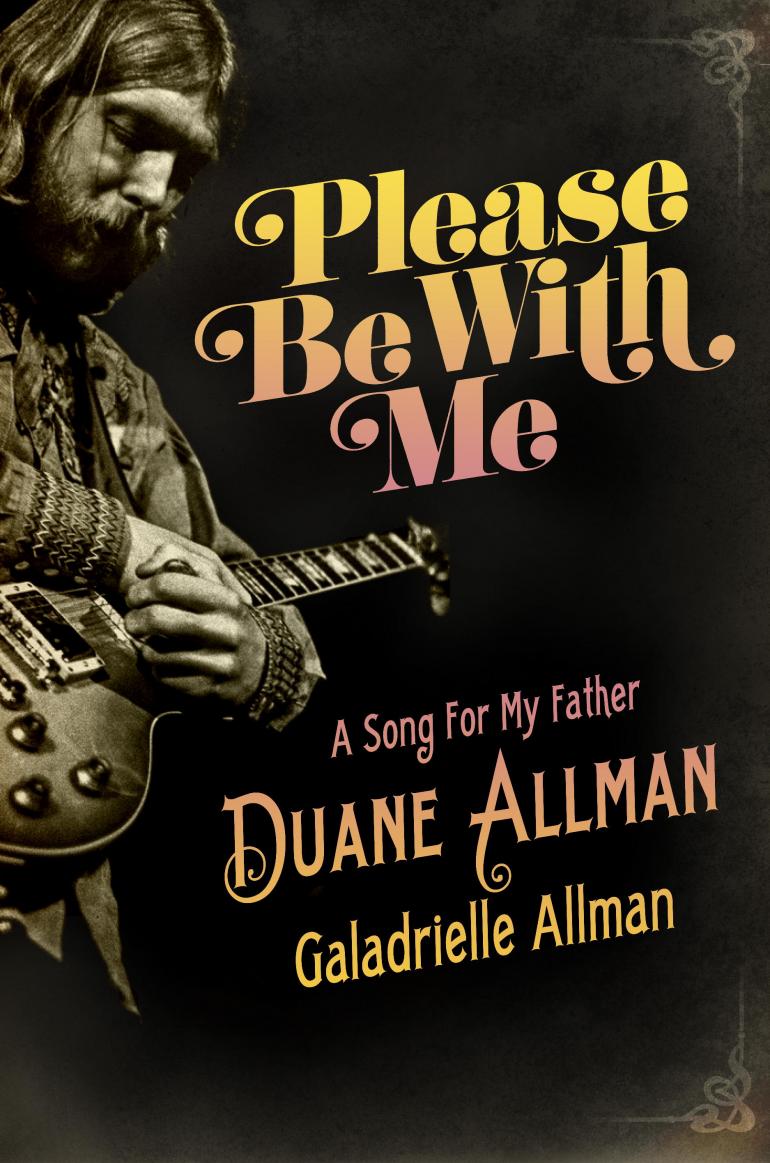
Please Be With Me
Open Mic: I can see where if the reaction had been different you could have had to decide ‘do I maintain my relationship with my family or do I finish this project?’ It sounds like they didn’t put you in that position.
Allman: They didn’t, although I have to say I remember one trip where I didn’t even ask any questions. I could just feel that the time wasn’t right. And there were trips when I would go for a weekend to see my grandmother and the energy wouldn’t be right. I could just tell that it wasn’t the right moment and that she wasn’t going to be open. Or I would ask the questions and she would give me one word answers and I would just have to accept it and go back home. And so that happened, too. It really was a process to get comfortable and to figure out exactly what I wanted to know. So even though I wasn’t stonewalled by anyone I certainly had to do the dance making sure the moments were right. And sometimes it would surprise me. I would be with my uncle leaving the concert with everybody in the van and he would start talking about my dad. It was like a gift. So sometimes it just happened and sometimes I had to work for it.
OpenMic: How long did it take to do all that research?
Allman: It was two and a half to three years of research and around five years to do the whole project. Initially I was given a year and half to finish it and I thought that I could do it. But so much of it was about coordinating time with people and finding ways to get close enough to them that they would open up. So it was a process for sure but I traveled a lot for those two years. I went to Alabama and all around and to all the different places where recording studios were and had just a pretty epic couple of years talking to everyone.
OpenMic: Were other people that knew your father as open?
Allman: I was pretty trusted. I have a couple of things on my side. Being his daughter and being a woman, I think my approach was pretty soft and was pretty respectful to people, and pretty honestly coming from wanting to know him. There were moments where I would have to say something like ‘I think I already know the worst of it. I think I already know the things you might want to protect me from, the hard things like the drugs or the infidelity or whatever.’ And I always put the frame around it that he was incredibly young. He died at 24 years old. Most of the things that happened in his life and in this remarkable career happened in this accelerated way, which to me that really explains a great deal. There’s no saying who he would have grown into, and I think that most of the people that knew him put it in that context too. So I don’t think there were secrets that people were protecting or feeling that I was going to take the wrong path with. I was motivated by love and I think that was really clear.
OpenMic: You said there were things you already knew about him; the lifestyle being what it was, etc. But were there things that surprised you in this process?
Allman: Honestly, the most amazing to me was the volume of work. I had no idea. I worked simultaneously on the boxed set, Skydog Retrospective, which is actually about to come out on vinyl. It was seven CDs of music that extends from my father’s first high school band recordings all the way to the end of his life, the live recordings. And so I have the luxury of helping produce that and getting to hear the music. I really had a counterpoint of listening to the work while I was writing the story and transcribing interviews. The scope of it was fascinating to me because so many things were happening in his life and yet the work remained his utmost priority and focus in a way that I think is incredibly rare for someone as young as he was. I think that’s why he was able to do so much. I think it was just an absolutely blinding, fierce need for him to play. I don’t think it was a choice, I think it just set him on fire. I’d seen him as naturally gifted or something, and actually I think his natural gift was his ability to focus. He worked so hard and with such dedication to do everything that he did. He was just tireless and that was something I didn’t expect to find. I didn’t realize that it wasn’t sort of like a big party. I mean he would leave the band and get on a plane and go to find Delaney and Bonnie to play on their tour, or while everyone else was taking a week off he’d be down in Miami recording “Layla.” He had this incredible burning curiosity and he just desired to play every single day. And I don’t think I realized the extent of that. I didn’t realize that it was just constant preoccupation for him. Because you hear this sort of laid back hippie version of the band that involves just hanging out together and tripping on mushrooms and being this big love fest, but he was a hardworking person. He didn’t have a lot of grass growing under him. He kept moving all the time.
OpenMic: You say your big interest had been fiction. But now you were working on this big sweeping piece of real history, something very personal that you’re very close to. How did you go about putting this wealth of information and getting it done on time?
Allman: Well it certainly wasn’t on time. They were very patient with me; it took much longer than I think the publisher anticipated because it was very hard for me to develop a consistent process. I struggled. I always say the hardest part is getting your ass in the chair, and I really struggled to stay on task all the time and especially once I had gone from being out in the world and gathering information to being alone with all the work. It’s really overwhelming. I started out trying to write in some ways a much more straightforward biography, but realized fairly quickly that I had too many emotional things at stake in the story to put that in the background. I had to be the pathway in for the reader. I had to write the introduction and I had to be the one to say “this is my stake in this story” and then occasionally break though that wall, which I do throughout the narrative, just to show the mechanism of it. ‘This is me sitting down in my grandmother’s living room’ and ‘this is what it felt like when she said this’ and once I found that structure and realized I could be honest about my struggles and my emotions and give my responses to the things I was finding out, it was much easier for me because I realized that I didn’t have to expect myself to be completely objective. I didn’t have to take myself out of it completely and just write this seamless biography.
OpenMic: All of us can relate to that.
Allman: Right. I’m actually one of those writers who loves to read authors in the Paris Review talking about their process because I am always looking for something that will work for me. But in terms of like the way I worked day to day, it was pretty isolating and pretty much a struggle to get it all down. I would listen to the interviews and transcribe portions of them that I knew I wanted to use. I was doing a lot of note-taking and listening to music, sort of isolated the major themes or moments that I knew were important. I did a lot of freewriting to get that going and then once I had the signposts of the story I could write the connective tissue of it. So that was basically my mode. I’m not one of those people who gets up and gets right to work every day and feels like writing is a completely magical thing that you just fall into and the world disappears. I mean it happens sometimes like that but a lot of times it’s just returning again and again and looking for it.
OpenMic: Yeah, we hate those people.
Allman: It’s really hard.
OpenMic: It is. Which is one of the reasons I ask that question of every writer I have done this with. This is such an isolated endeavor most of the time, and the longer the project the more isolating it is. I joke with my wife all the time that at the point in the day where I’ve had my third conversation with the dog I know it’s time for me to get up and go into the world. Take a shower, put on a clean shirt, go to the store, do something.
Allman: Well I couldn’t have written my book without my cats. They would just come sit and stare at me you know, sit next to my computer and just watch me. Yeah it’s really easy to get a little lost in that and sometimes you just have to get up and walk around the block. But I really did learn a lot. And actually, as soon as I started working on the novel I’m working on now, I joined an advanced class with eight other people that are working on novels just for the structure, just for the community, just to have people that are going through the same thing to talk to. It’s an unconventional way to do it, but I wasn’t really sure how else to find people that were like-minded. It’s hard to find community. My best friend is a lawyer and we go out to dinner and she can tell me all these amazing stories about her day, and I’m like ‘well, I finished paragraph five that I’ve been struggling with for a week.’ It’s like not great cocktail conversation. You need writer friends that can talk to you about how you put something in third person and now everything flowed and they understand what you’re talking about.
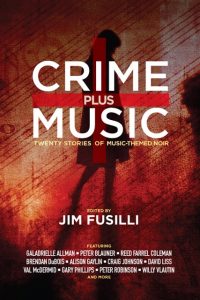
Crime Plus Music ..
OpenMic: You started out with the intention of writing fiction before taking on this very big non-fiction project, and now you’re switching back. How is that transition going for you, both for the “Crime Plus Music” project and with a novel?
Allman: It’s been really interesting and a big change. It’s amazing to me the number of choices you have to make and how wide open everything is. When you’re writing non-fiction you have a structure. The plot is already there. It’s about finding what makes that story interesting and what makes that story move you and writing honestly about that, expressing the moments and describing them well. But when you’re writing the fiction you’re really making things up out of whole cloth and it’s forcing you to use your own experiences, or knowledge received from research as well, but you have so many possible roads you can take. It can go any number of directions and to me that’s been really a challenge. It’s a great problem to have because it’s an incredible feeling to be untethered.
OpenMic: That’s a big change.
Allman: It is. I’m so glad I don’t have to sit down with the characters that I’m working on now and talk to them. It’s much easier to be alone with your ideas when you’re writing fiction and not have to hold it up against real life. But it’s also really challenging for me. I’m not a big plotter. I love developing characters and dialoguing emotional scenes between people, but making big things happen is harder for me. I always want it to be grounded in my own experience. I’m kind of new to this fiction writing, but I want to be true to something that I understand.
OpenMic: Tell me more about “Crime Plus Music,” the collection of music-themed noir stories you contributed a story to.
Allman: I met with Jim Fusilli [Music Editor for the Wall Street Journal], who edited Crime Plus Music, down in Savannah with my uncle during the writing of my book. Jim came to interview Gregg about an album he had just released and, in classic Gregg Allman fashion, he actually got into the shower as soon as Jim’s car pulled up and left him alone for 45 minutes. So I ended up talking to him and we had a great conversation about music and about my dad and about writing. Later, once all of the press thing was behind me from the book, he approached me about this project, which has been a labor of love for him because combines music – he is incredibly knowledgeable about all kinds of music – and his deep love of detective and crime fiction. So he asked me to do a story and I just thought ‘Oh, Jim that’s incredibly kind of you to ask me but I have no experience.’ It’s hard enough to write a short story, forget about writing a short story that actually has a theme and a genre. These were some strange high bars for me and it took me a long time to figure out a way in because I just knew I wasn’t going to invent a detective or create a murder. I couldn’t see my own voice coming through in that kind of way. I knew that I had to come at it from a different angle and it took me a while to figure out how to do that. And I realized that what I really wanted to write about and felt equipped to write about was about the way that hearing crime stories affects people, especially young women. And in the novel that I’m writing now the main protagonist is a teenage girl, and so I think I had that voice in my head already.
OpenMic: It was a very well done story. I definitely did not seem like a first timer’s work.
Allman: It’s actually based on a true story. I had a bus driver as a child that would tell us really gruesome stories. There was one in particular that I never forgot the details of because it was so graphic and so outrageous. And hearing that simple story really did change the way the world felt to me. She told this story of a very violent attack on a young girl and I was instantly afraid of my surroundings. It changed everything for me, even walking home from the bus stop. Instantly in that moment I felt this awareness of myself as prey that I’d never had before. So that was sort of the seed of the idea I thought ‘oh, you know this is something I can really sink my teeth into.’ So I took the seed of her story and of course made it even more extreme for the purposes of fiction. I also tried to write about the way that music can be a way of understanding your world as well, and the stories you hear in music can either show you what’s possible or it can also show you the biases of the culture. In the story the girl turns to a friend to talk about this horrible story they’d heard and they end up listening to the radio together, playing this game that they’ve played since they were children, trying to guess the band names, and she starts to be aware all of a sudden that all of these songs that she’s always really loved are actually really gendered and the women aren’t coming out looking so great and that was something she had never really clued into before. So I think there’s a way stories you hear and things you read about happening to other people can really change the way that you see the world, and I wanted to write about that rather than making up a suspenseful mystery.
OpenMic: Do you see yourself doing any more nonfiction at any point?
Allman: I think I would love to continue writing about music to different degrees. I think I’ve found a real passion for that, really trying to track stories about music and its transformative power. Because of the way I was raised, I really do value music as a language and as a way that we all understand ourselves and also find each other. It can express things for you when you can’t express things for yourself and I think all of that really does fascinate me. I can imagine writing about other musicians or their families. And there’s a really strong music scene in the novel that I’m working on as well that kind of derives from the punk theme in the 80’s in the Bay Area, which I moved into from the South when I was 11. That was a big eye opener for me and so I think music will always be a huge thing for me, whether its fiction or non-fiction. I loved writing non-fiction and I was pretty comfortable there so I would look forward to doing that again, for sure.
OpenMic: You worked for five years of your life to develop this connection with your father. But now as you move forward with other projects, do you feel that you may have to disconnect from that to some extent and move away from what you spent all that time building?
Allman: I’m hoping to integrate it more than to move away from it. I want to absorb the lessons from it and carry it forward. But yes, as far as this constant talking about the band, I do feel this willingness to not make that central to my identity as a writer. I carry a lot of fear that to some people that’s what’s it’s always going to be about and where I’m coming from. But I also want to write with a separate connection to readers that has nothing to do with the family. So it is about finding that balance, to be able to find strength from this experience and use it to keep going, but to also let go of it a little bit so I can have my own identity. Which in a way isn’t really possible because of my last name. I’m always going to be a representative of the family. Representing my father and his estate is always going to be my main job in many ways, but it is definitely time for me to branch out and to grab on to stories that are more about music and families in general but not so tethered to my father in particular.
OpenMic: I’d like to end with kind of a silly question. If I were to tell you I had the power to put you together in a room to have dinner or drinks with just one of the following three people, which one would you pick and why? Your options are Nelson Mandela, Donald Trump, or Eleanor Roosevelt.
Allman: Wow, fascinating! I absolutely would have to choose Eleanor Roosevelt. Talk about an interesting character. To me she’s someone who has a quality which I’m always fascinated by, which is the incredibly intelligent and ambitious and sensitive women behind the man who gets all the credit for being all of those things. I would be very curious to know how she had this really divided public and private life and what the sacrifices are living that way. And also just the fascination of talking to a woman who’s lived in a completely different time and yet still managed to be a leader and to really do things that you know most women didn’t have access to or didn’t even try to do. I would absolutely not have anything to say to Donald Trump. I don’t think he would have the ability to show up and talk to anybody in the moment. And Nelson Mandela…that is the harder choice because what an incredible story. But I feel like I already in some ways have read enough about him. He’s such a larger than life incredible hero, I don’t know if I would be able to have a cup of coffee with him. I would just sort of be dumbstruck. What a fun question.

